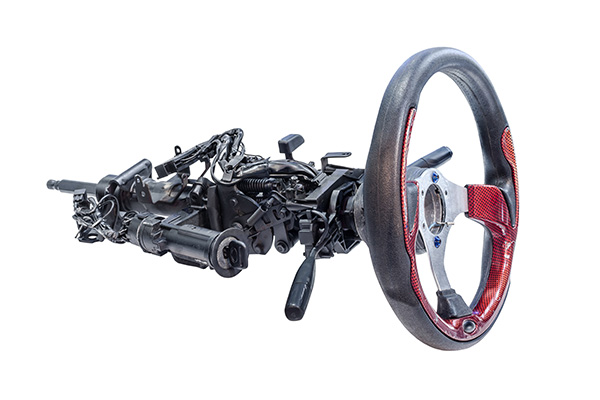
When you get behind the wheel of a new car, everything should feel perfect, right? But sometimes, the steering doesn’t feel quite like you expected—it might be heavier, lighter, or even unresponsive in certain situations. If you’re wondering whether this kind of steering feedback is normal for a new vehicle, you’re not alone.
Steering feedback is one of the most important factors affecting how a car drives and feels on the road. It can give you a sense of control, or it might cause concern if it doesn’t meet your expectations. So, is unusual steering feedback something to worry about, or is it just part of the experience with a new vehicle? Let’s explore why your new car might feel different and what you can do to ensure a smooth and safe driving experience.
Power Steering Systemс
One of the first things to know about a new car is that several components need time to settle in, and the steering system is no exception. If your car has hydraulic or electric power steering, it might feel different when it’s fresh off the lot because the system hasn’t been fully broken in yet.
New parts like the steering rack, pump, and fluids require some usage to perform at their optimal levels. This could be perfectly normal if the steering feels stiff or unresponsive at first. The steering system will typically adjust after driving your car for a few hundred miles, and the feedback should become more familiar.
However, if the steering remains inconsistent or worsens over time, it may be worth having the system inspected to ensure everything is working as it should.
Types of Steering Systems
Another factor to consider is the type of steering system your car uses. There are two primary types of steering systems found in modern vehicles: hydraulic power steering and electric power steering (EPS). Each offers a unique steering feel, and that might contribute to your sense of unusual feedback in a new car.
Hydraulic Power Steering (HPS)
Known for offering a more traditional, tactile feel, hydraulic steering systems rely on a pump to assist in turning the wheels. This system can feel heavier or more direct, which some drivers prefer. But if you’re transitioning from a car with electric power steering, the difference might be noticeable.
Electric Power Steering (EPS)
Modern cars are increasingly equipped with EPS, which offers a lighter steering feel and often features variable assistance based on speed. EPS systems can sometimes feel disconnected or too light at low speeds, which can be surprising if you’re used to the more weighted feel of hydraulic systems.
The shift in steering technology could explain why a new car feels different compared to what you’re accustomed to. Both systems have their pros and cons, but EPS tends to dominate newer models due to fuel efficiency and technological advancements.
Alignment Issues
Although new cars are built to precision, it’s possible that your vehicle’s alignment isn’t perfect right out of the gate. Misalignment can create unusual feedback, such as the car pulling to one side or the steering wheel not returning to center as expected.
Sometimes, even a small bump during transportation from the factory can affect the car’s alignment, leading to issues like uneven tire wear or difficulty keeping the vehicle straight on the road.
If you notice that the steering feedback is inconsistent or if the car pulls in one direction, it’s a good idea to have the alignment checked. Proper alignment is crucial for even tire wear and smooth handling.
Road Conditions and Steering Sensitivity
It’s also worth noting that road conditions can significantly impact the way your steering feels. A new car might be more sensitive to bumps, potholes, or uneven surfaces, which can cause vibrations or irregular steering feedback.
This sensitivity is often more noticeable in new vehicles because they’re fitted with brand-new tires, and the suspension is at its peak performance. As the car settles and tires wear in slightly, the overall ride may feel smoother, and steering feedback may normalize.
To mitigate these effects, ensure your tires are inflated to the correct pressure and your suspension components are functioning as they should. This will help create a more balanced driving experience over time.
When Should You Be Concerned?
Although unusual steering feedback is often normal in new cars, there are a few red flags that might indicate a more serious issue. If you experience any of the following, it’s a good idea to have your car inspected:
Steering wheel vibration
Constant vibrations while driving could indicate issues with the wheels or tires, such as imbalance or uneven wear.
Difficulty turning
If the steering becomes excessively heavy or hard to turn, this could be a sign of a problem with the power steering system.
Steering wheel doesn’t return to center
If the steering wheel doesn’t return to the center position after making a turn, this could signal an alignment issue or a problem with the steering rack.
If your new car shows any of these symptoms, it’s worth getting it checked by a professional to prevent further issues and ensure your safety on the road.
Experiencing unusual steering in your new car? At Elite Imports & Auto Repair, we offer comprehensive steering system diagnostics to identify and fix any issues. Book your appointment today and get back to enjoying your drive.